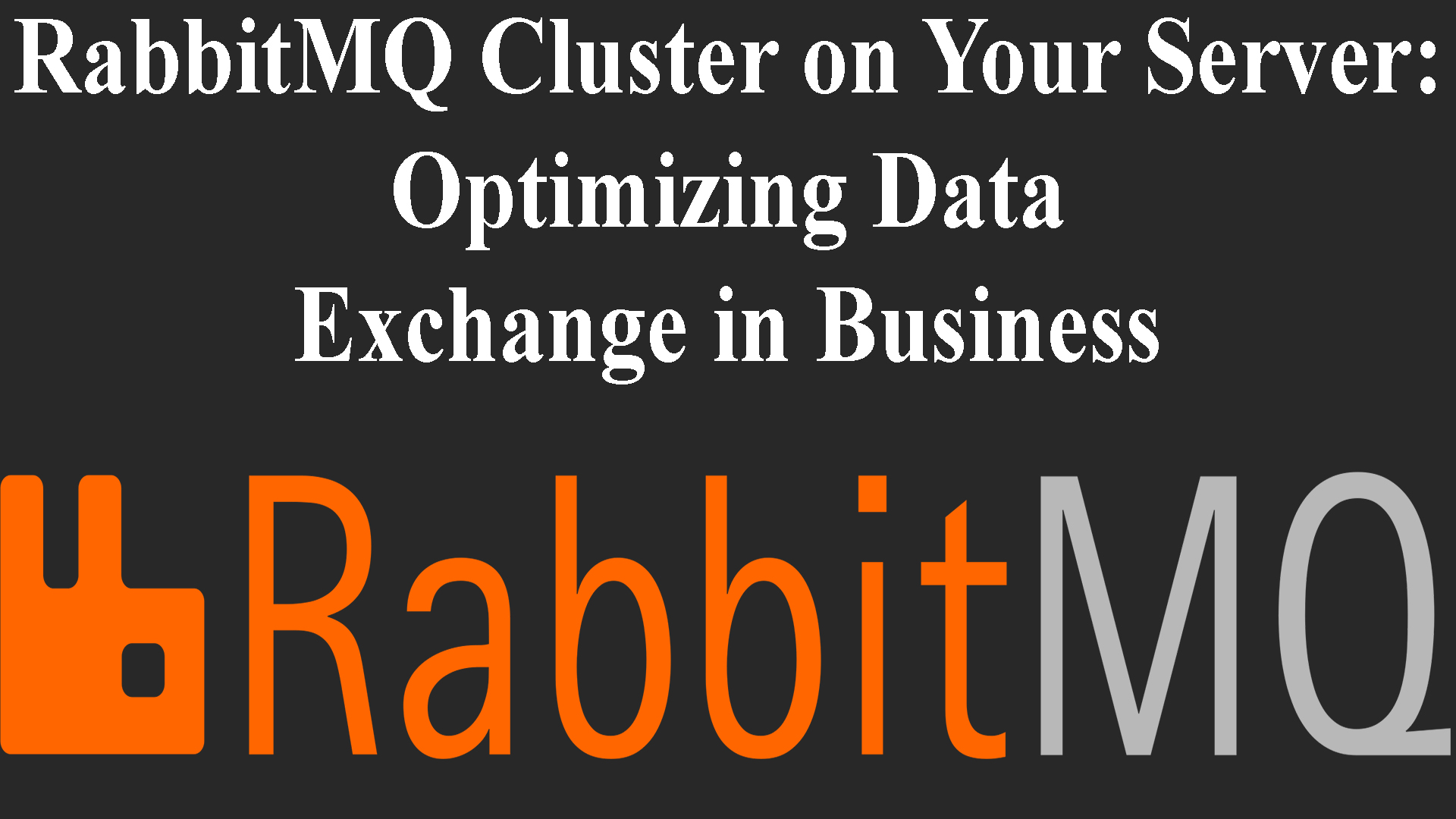RabbitMQ Cluster on Your Server: Optimizing Data Exchange in Business

RabbitMQ Cluster is a powerful solution for organizing efficient data exchange in business. In this article, we will look at how RabbitMQ Cluster can be useful for your company, its advantages and disadvantages, applications and conclusions about its value.
Description and Purpose
RabbitMQ Cluster is a high-performance, scalable and reliable messaging system. It is based on the AMQP (Advanced Message Queuing Protocol) protocol and provides businesses with a reliable means to exchange data between various components of the system.
Advantages
- Reliability: RabbitMQ Cluster provides guaranteed message delivery, which makes it a reliable tool for the exchange of critical data.
- Scalability: With clustering, you can easily scale RabbitMQ to handle large amounts of data and queries.
- Flexibility: RabbitMQ Cluster supports various messaging templates, which allows you to choose the most suitable for a specific task.
Disadvantages
- Complexity of Installation and Configuration: Setting up and managing a cluster can be a complex task that requires certain knowledge and skills.
- Infrastructure Dependency: The correct operation of the cluster may depend on the reliability and availability of the infrastructure.
Where it is used
- Queue Processing: RabbitMQ Cluster is ideal for processing requests in the form of queues, where data can be gradually processed in the right order.
- Event Architecture: A cluster can be used to implement an event architecture where various components of the system react to events and exchange data.
- Microservices: In a microservice architecture environment, RabbitMQ Cluster can provide communication and synchronization between different services.
Conclusion
RabbitMQ Cluster is a powerful tool for efficient data exchange in business. It provides reliability and flexibility in message processing, which makes it useful for a wide range of tasks. Despite the complexity of configuration and management, its advantages in ensuring reliability and scalability make it a valuable resource for companies seeking to optimize their data exchange and ensure the reliability of their systems.

